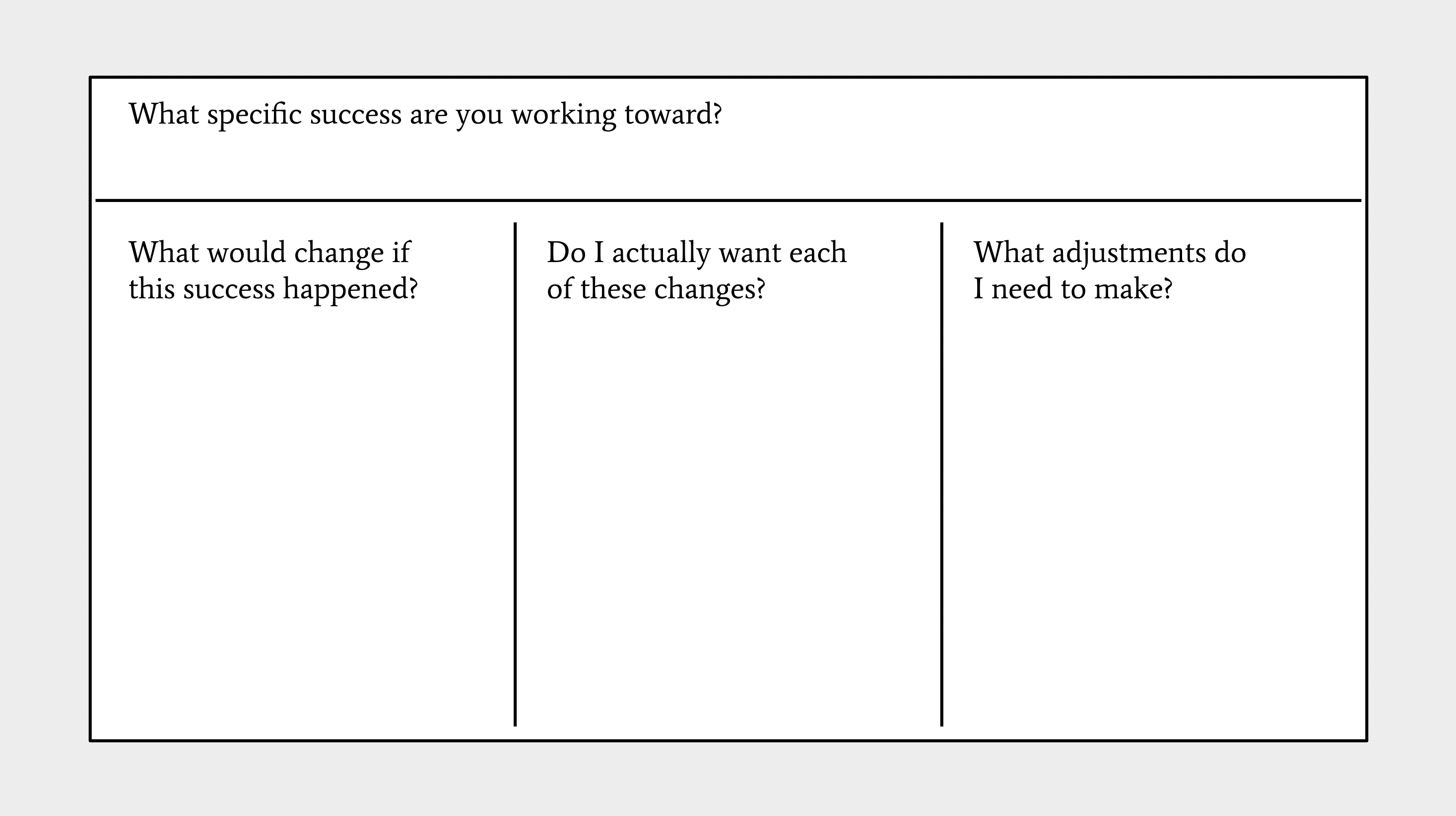We’ve all felt that familiar knot in our stomach when facing the possibility of failure. It’s the subject of countless articles, TED talks and self-help books: how to face it, learn from it, bounce back from it. We’ve become experts at preparing for things to go wrong.
But here’s what’s rarely discussed: our complicated relationship with things going right.
What if the project takes off beyond your wildest expectations? What if the funding comes through? What if that promotion you’ve been angling for actually lands on your desk next week?
“What if it works?” is a question that can reveal a lot about your true desires and fears. What changes when you get what you think you want? And more importantly, do you really want those changes?
The Brain’s Complicated Relationship with Success
Research suggests that the brain’s threat detection system reacts not just to danger, but to any kind of unpredictability. That’s why even positive change such as success, recognition, or new opportunities can produce anxiety.
Think about the last time you got unexpectedly good news. Along with the joy, did you feel a flutter of “Oh no, now what?” That’s your brain trying to regain control of an uncertain situation.
When faced with this discomfort, most people instinctively choose one of two paths. Some pull back and avoid the unknown altogether. Others push forward aggressively, trying to dominate the uncertainty through sheer force of will.
Fear of success represents the avoidance mode. Psychologically, it’s driven by loss aversion. Success often requires giving up things we value: comfort, privacy, freedom, predictability, or even a familiar sense of self. These losses can feel more real than the abstract benefits success might bring.
Blind pursuit of success is the opposite reaction: autopilot ambition. We chase success for the security and validation it promises, assuming that more is automatically better, without pausing to examine whether it truly fits the life we want to build. We end up climbing ladders only to discover they’re leaning against the wrong wall.
Both are understandable reactions, but neither is particularly strategic.
But there’s a third option: strategic success. Instead of reacting instinctively to uncertainty, we create space to ask what success would actually mean for our lives and whether those changes align with our deeper values and priorities.
It’s the shift from reaction to reflection, from seeking control to making conscious choices.
A Framework for Strategic Success
If you’re working toward something important right now – whether that’s a career change, a creative project, a business launch, a relationship milestone – try this brief metacognitive exercise:

1. Name the success clearly. Write down the specific outcome you’re working toward. Not the vague hope (“things work out”) but the concrete reality (“I land the VP role,” “I get this new client,” “my book gets published,” “we secure series A funding”).
2. List what would change. Consider your daily schedule, energy allocation, relationships, responsibilities, financial situation, social dynamics, and even your identity. If you became known as “the VP” or “the published author” or “the CEO,” how would that feel?
3. Ask “do I actually want that?” Would you welcome the increased visibility, or does the thought make you want to hide? Are you excited about managing a larger team, or does it sound exhausting? Do you want the financial upside enough to accept the pressure that comes with it?
4. Adjust accordingly. If some of the changes don’t appeal to you, treat this as valuable information. You might need to redefine what “success” means for you specifically or build in safeguards to protect what matters most, or even reconsider whether this particular ambition is worth pursuing.
This exercise takes about 20 minutes but it can save you years of pursuing outcomes that look good from the outside but feel wrong from the inside. It ensures that the success you’re building is one you’ll actually want to live with.
When you’ve considered what success would actually mean for your life, you can pursue it with a sense of calm clarity or consciously choose a different path entirely.
Either way, you’re no longer just hoping things work out. You’re actively designing what “working out” means for you.
